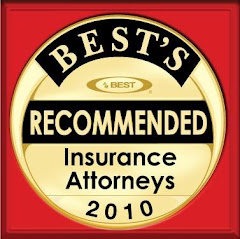Our recent spell of 90 degree plus weather may be a harbinger of things to come this Summer. As you head out to your jobs in the high heat and humidity, it is imperative you remember that if you become a victim of heat stroke or heat exhaustion while on the job, you may be eligible for benefits under the Conectiucut Workers Compensation Act. The same holds true for insect bites. Through the years I have represented a number of injured workers (and defended a few employers as well) that contracted Lyme Disease as a result of an insect or tick bite while at work.
If you fall ill due to a on the job condition, it is imperative you contact an experienced Connecticut Workers Compesation Attorey as soon as possible to protect your rights.
Comedian John Oliver Explores the Social Security Disability Mess
-
Comedian John Oliver takes a cynical and very funny look at the Social
Security disability and SSI system. For those of you caught up in the
nonsense, t...
9 months ago






